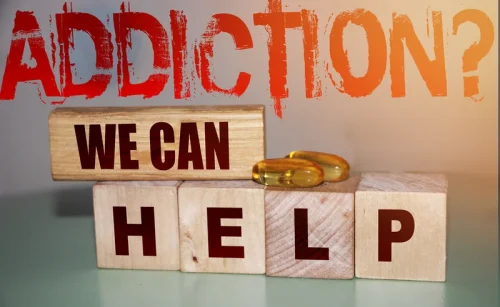You, too, might realize that your relationship with alcohol is negatively affecting your life. Understanding denial is a first step toward helping your loved one with alcohol use disorder. When you realize denial is a coping mechanism, you may feel less frustrated with the behaviors you’ve seen.
Signs of Denial in Alcoholism
During the intervention, express your concern and care for the individual. Resurgence Behavioral Health suggests using empathetic language and focusing on the impact of their behavior on themselves and those around them. Using specific instances and observations can help dismantle denial. Resurgence Behavioral Health advises presenting evidence gently and objectively to help them see the reality of their situation. Resurgence Behavioral Health encourages using “I” statements to communicate how their drinking impacts them, creating a space for them to reflect without feeling defensive. Approach the conversation when the person is sober and in a calm setting.
- But not everyone living with alcohol use disorder experiences the same level of denial, if they experience it at all.
- We need to be able to approach with empathy to the loved ones who are reluctant to change, helping them face the truth and become more open to change.
- People must first realize and accept that they have a drinking problem in order to get over this obstacle.
- It is not your job to “cure” your loved one’s alcoholism, but allowing natural consequences to occur is one factor that can push a person from the pre-contemplative stage to the contemplative stage of overcoming addiction.
- It is not surprising that regression analyses in the current data support Hypotheses 2–4, each of which have support in the literature.
Addiction and Mental Health Resources
Resurgence Behavioral Health, a leading figure in addiction recovery, offers insights into how to help individuals on the path to recovery and healing. alcoholism and denial Many people with alcohol use disorder lie about their drinking habits. It’s usually to avoid judgment or being scolded by their loved ones and friends.
- For example, they might use breath mints or mouthwash as an excuse for the smell of alcohol on their breaths.
- If you’re a friend, parent, or spouse of someone with alcohol use disorder, read on to learn about how to help someone in denial.
- You might slowly begin to accept more and more unacceptable behavior.
- Individualized treatment programs delivered in a comfortable, relaxed setting promote healing in your recovery journey.
The role of family and friends
You might slowly begin to accept more and more unacceptable behavior. Before you realize it, you can find yourself in a full-blown abusive relationship. Keep in mind that someone with alcohol dependence usually goes through a few stages before they are ready to make a change. Until they begin to contemplate quitting, any actions you take to “help” them quit will often be met with resistance. For those who love someone living with an addiction, it is very difficult to sit back and let the crisis play out to its fullest extent. When they reach the point in their substance use when they get a DUI, lose their job, or go to jail, for example, it can be difficult to accept that the best thing they can do in the situation is nothing.
They may lie to simultaneously maintain their drinking habits and their relationships with loved ones. They may also engage in evasion, deception and manipulation to distort the truth about their alcoholism. The journey towards recovery from alcoholism, especially with Anthem Insurance Coverage for Drug Rehab, is a transformative process that demands careful navigation and steadfast commitment. For those who have overcome denial, taking the steps toward lasting change requires guidance and support.
Avoiding Conversations about Drinking
- It can be difficult to help someone with AUD who is in denial about their drinking, but there are ways you can start the conversation.
- “For starters, the media, our workplaces, and many social circles normalize drinking to excess,” says Ruby Mehta, a clinical social worker and director of clinical operations at Tempest.
- According to social learning theory, we learn through observing and imitating others around us.
- Giving them a chance to voice their thoughts and feelings can foster a sense of trust.
- Alcoholism has been known by a variety of terms, including alcohol abuse and alcohol dependence.
As the person’s drinking continues to worsen over time, the consequences related to alcoholism increase. Blame involves shifting responsibility for their drinking onto external factors. An alcoholic may blame others or situational circumstances rather than take ownership of their behavior. For instance, they might say things like, “If my spouse didn’t nag me all the time, I wouldn’t need to drink,” or “It’s just because of the stress at work that I have to drink.” Let’s help you understand what constitutes alcoholism denial and why it poses challenges during recovery.

Intervention Strategies for Addiction
Research shows that there is indeed a genetic predisposition involved in developing alcohol addiction, which means factors beyond personal control come into play. For example, someone might express that they can handle alcohol just fine or that they only drink socially; it’s not a problem. This deflection helps them maintain control over how others perceive their drinking while avoiding facing the reality that they may have an unhealthy relationship with alcohol. Concealing is another sign of alcoholism denial, where individuals try to hide their drinking from others. They may go to great lengths to cover up their habits and avoid discussing the issue when confronted. For example, they might use breath mints or mouthwash as an excuse for the smell of alcohol on their breaths.


